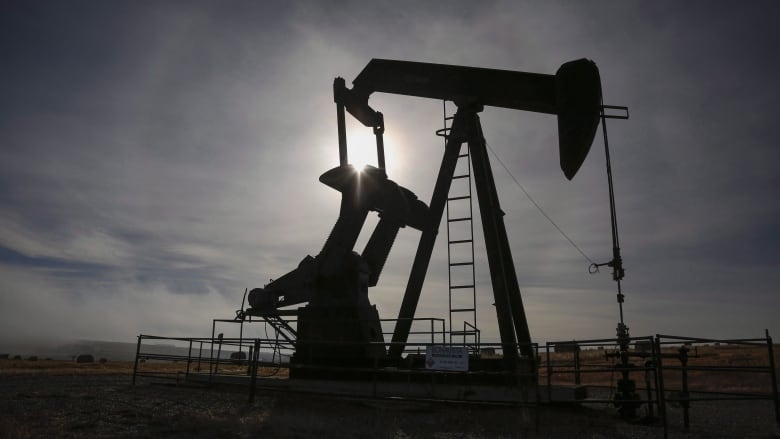B.C. overhauls oil and gas royalty system by changing 'broken system' of subsidies
New oil and gas royalty system to be phased in starting Sept. 1

After a reviewof B.C.'s 30-year-old oil and gas royalty system, the province says it plans to phase out its current fossil fuel subsidies and introduce a new system for royalty payments.
Since the current system was implemented in the 90s, natural gas production, market conditions and climate change concerns have changed dramatically, the province says.
"For too long, a broken system of fossil-fuel subsidies has failed to align with our climate goals or ensure people fully benefit from these resources," said Premier John Horganfrom Victoria in prepared remarks at a news conference.
The Deep Well Royalty Program, the largest oil and gas subsidy in B.C.,will be eliminated, as well as the marginal and ultramarginal programs and thelow productivity subsidy program.Existing credits will expire in four years.
"This will give British Columbians a fair return and allow us to invest in their priorities like improving services, bringing down costs and tackling carbon pollution," said Horgan.
The Deep Well Royalty Program was created in 2003, according to a statementfrom the province. Itoffsets higher drilling and completion costs incurred by wells that are considered particularly deep.
The new royalty system will apply to all new wellsand will be phased instarting Sept. 1.
The province says it expects the new program to be in full swing by September 2024, when aminimum royalty rate of fiveper centwill be in effect. Right now, the royalty rate is three per cent; the province says that increase will generate more funds to put toward public services and climate action.
"This will support vital public services, such as roads and hospitals while advancing continued environmental protection for British Columbians,"said Bruce Ralston, the minister of energy, mines and low carbon Innovation.
Under the new system, companies will pay a flat five per cent royalty on revenue until they reach the amount the company spent to drill thewell. Royalties could rise to up to 40 per cent, once drilling costs are recovered.
The province says it doesn't believe this new system will impact drilling in B.C., despite the higher costs for companies.
'Clear acknowledgement'
The changes followan independent assessment of the existing royalty frameworkby Nancy Olewiler,director and professor for the school of public policyat SFUand Jennifer Winter, director of energy & environmental policy at the University of Calgary's school of public policy.
They concluded that B.C.'s natural gas royalty system needed to be completely reformed.
"The new system is a good start to simplify, modernizeand eliminate outdated programs," said Olewiler in reaction to Thursday's announcement.
Conservationists also commended the changes to how B.C. subsidizes the oil and gas sector.
BREAKING: The @bcndp will cancel its biggest fossil fuel subsidy, thanks to incredible pressure from residents across BC! But they stopped short of canceling ALL fossil fuel subsidies. Use our tool to email and say thanks - but the job isn't done yet. https://t.co/2hG7OQnbtg pic.twitter.com/v7jbtk6cf1
—@standearthStand.earth said in a statementthat credits from the Deep Well royalty cost the B.C. government $1.2 billion in 2021.
It said the subsidy helped prop up fracking in the province, which, it says, creates a roadblock to the province meeting its climate targets.
"Today's announcement is a clear acknowledgement by Premier Horgan that fracking companies in this province have been getting a free ride at the expense of taxpayers and the environment," saidSven Biggs, Canadian oil and gas program director for Stand.earth.
"This is a step toward fixing that imbalance."
Stand.earth said the changes announced Thursday still include the creation of new fossil fuel subsidies that will continue to use public funds to encourage new fracking wells.
The organization is calling on the province to end all fossil fuel subsidies in orderfor the oil and gas sector to meet emissions reductions below 2007 levels by 2030.












_(720p).jpg)


 OFFICIAL HD MUSIC VIDEO.jpg)
.jpg)



























































































